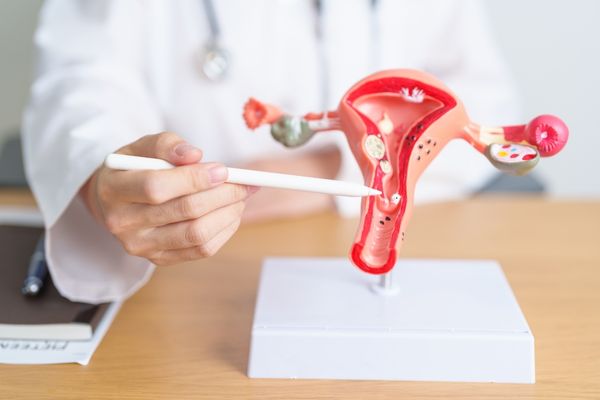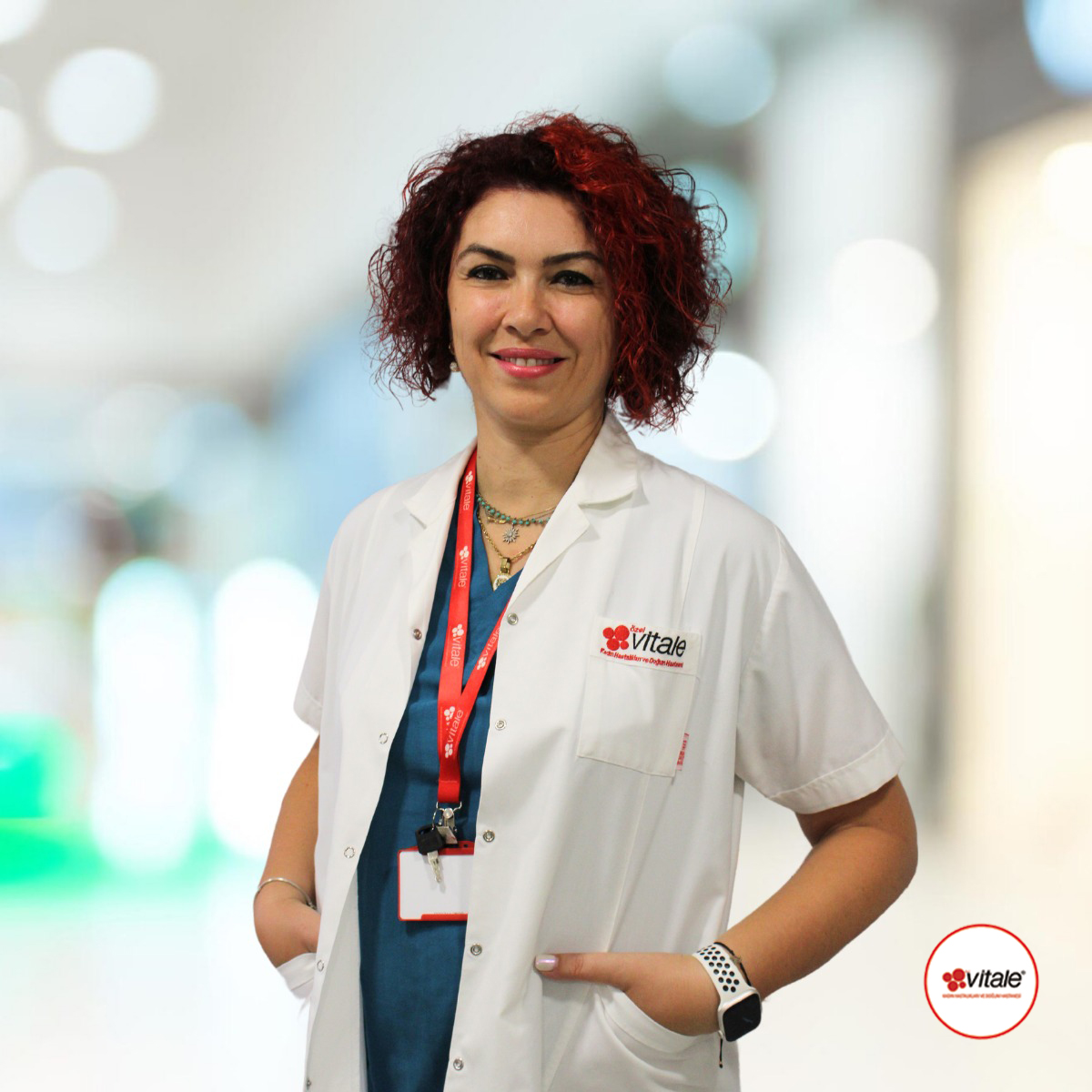Endometriosis
Treatment of Endometriosis at Vitale Hospital


What is Endometriosis?
Endometriosis is a chronic condition in which tissue similar to the lining of the uterus, called the endometrium, grows outside the uterus. This misplaced tissue can be found on the ovaries, fallopian tubes, and other pelvic organs, causing inflammation, pain, and in some cases, infertility. While the exact cause of endometriosis is unknown, factors like genetics, retrograde menstruation, and immune system issues are believed to contribute to the development of the condition.
Table of Contents
ToggleThere are different stages of endometriosis, ranging from mild to severe. The disease is categorized based on the location, amount, and depth of the tissue growth, as well as the presence of scar tissue. Women with endometriosis often experience intense pain, but the severity of symptoms does not always correlate with the stage of the disease.
What are the Symptoms of Endometriosis?
The symptoms of endometriosis vary, but the most common sign is pelvic pain, especially during menstruation. Women often describe the pain as far more intense than typical menstrual cramps. Other symptoms include:
- Heavy Menstrual Bleeding: Women may experience abnormal bleeding between periods or during menstruation.
- Pain During Intercourse: Painful intercourse is a common symptom due to tissue growth affecting pelvic organs.
- Pain with Bowel Movements or Urination: This usually occurs during menstruation.
- Infertility: Endometriosis can interfere with the reproductive organs and is a leading cause of infertility.
- Fatigue, Diarrhea, Constipation, and Nausea: These symptoms may occur, particularly during menstruation.
It’s important to note that the severity of the pain does not always reflect the extent of the condition. Some women with severe endometriosis may have mild symptoms, while others with milder forms may experience intense pain.
How is Endometriosis Treatment in Turkey?
Turkey is renowned for its high-quality healthcare system, offering advanced treatments for endometriosis at affordable prices. Treatment options for endometriosis in Turkey range from conservative approaches like medication to more invasive surgical options. The choice of treatment depends on the severity of the condition, the patient’s age, and whether or not they wish to preserve fertility.
Hormonal treatments aim to reduce or stop menstruation, thereby slowing the growth of endometrial tissue. This can include birth control pills, hormone therapy, or gonadotropin-releasing hormone (GnRH) agonists.
Over-the-counter pain relievers like ibuprofen can help manage mild symptoms, but they are often insufficient for more severe cases.
In cases where medication is ineffective, surgery is often recommended. Laparoscopic surgery, a minimally invasive procedure, is commonly used to remove as much endometrial tissue as possible while preserving fertility.
Turkey's healthcare facilities offer state-of-the-art surgical options, including laparoscopic and robotic surgeries, ensuring that patients receive the most effective treatment with minimal recovery time. Many hospitals also offer specialized fertility preservation programs for women who wish to conceive after treatment.
Surgical treatment for endometriosis in Turkey
Surgical treatment is often recommended for women with moderate to severe endometriosis, especially when other treatments like hormonal therapy fail to relieve symptoms. In Turkey, cutting-edge medical facilities offer advanced surgical options, including laparoscopic and robotic surgeries, which are minimally invasive procedures designed to remove endometrial tissue while preserving healthy reproductive organs.
Types of Surgical Treatments Available for Endometriosis in Turkey
There are two primary types of surgery used to treat endometriosis:
- Laparoscopy: This is the most common surgical procedure used to treat endometriosis. It involves small incisions in the abdomen through which a thin, lighted tube (laparoscope) is inserted to visualize and remove endometrial tissue. Laparoscopy is minimally invasive, leading to shorter recovery times and less scarring.
- Laparotomy: In more severe cases, or when laparoscopic surgery is not possible, a laparotomy may be performed. This is a more invasive surgery that requires a larger abdominal incision to remove large areas of endometriosis or to correct damage caused by the condition.
In some cases, especially for women who are not planning to have children, a hysterectomy (removal of the uterus) may be recommended as a last resort if other treatments do not provide relief.
Benefits of Endometriosis Surgery in Turkey
Turkey is known for its world-class medical expertise and advanced surgical techniques. Some benefits of undergoing surgery for endometriosis in Turkey include:
- Minimally Invasive Techniques: Laparoscopic and robotic surgeries minimize pain, reduce recovery time, and lower the risk of complications.
- Experienced Surgeons: Turkish hospitals are staffed with highly experienced gynecologists and surgeons who specialize in treating endometriosis.
- Comprehensive Care: Many hospitals in Turkey offer holistic care packages that include pre-surgical evaluations, post-operative care, and fertility preservation options.
- Affordable Costs: The cost of surgical treatments in Turkey is significantly lower than in many Western countries, making it a cost-effective option for international patients.
How Does Endometriosis Affect Fertility?
Endometriosis is one of the leading causes of infertility, affecting up to 30-50% of women who struggle to conceive. The condition can cause structural damage to the reproductive organs, including the fallopian tubes and ovaries, which can prevent the egg from being released or fertilized. Additionally, endometriosis can cause inflammation that impairs the function of sperm and eggs.
Women with mild to moderate endometriosis may still conceive naturally, but those with severe forms often require assisted reproductive technologies (ART) such as in vitro fertilization (IVF). In Turkey, many clinics specialize in fertility treatments, offering hope to women struggling with infertility due to endometriosis.
How Much Does Endometriosis Treatment Cost in Turkey?
Turkey is a popular destination for medical tourism, offering world-class treatment at a fraction of the cost compared to other countries. The cost of endometriosis treatment in Turkey depends on the type of treatment required:
- Hormonal Therapy: Prices for hormone treatments can range from $500 to $2,000 annually, depending on the type of therapy.
- Laparoscopic Surgery: The cost of laparoscopic surgery for endometriosis in Turkey typically ranges between $3,000 and $8,000, depending on the complexity of the case and the hospital chosen.
- Fertility Treatments: If fertility treatments are necessary, the cost for IVF in Turkey is significantly lower than in many Western countries, starting at approximately $3,000 per cycle.
Doctors
Op. Dr. Nalan CİHANGİR
Gynecology and Obstetrics Specialist

Op. Dr. Ali Fuat ŞENGÖR
Gynecology and Obstetrics Specialist

Op. Dr. M. Taner KILIÇ
Gynecology and Obstetrics Specialist

Op. Dr. Sema MÜLAYİM
Gynecology and Obstetrics Specialist

Op. Dr. Esra ÜNAL
Gynecology and Obstetrics Specialist

Op. Dr. R. Hakan GÜRALP
Gynecology and Obstetrics Specialist

FAQ
Yes, Turkey offers high-quality care for endometriosis, with advanced medical facilities and experienced surgeons. Many international patients choose Turkey for its affordable and effective treatment options, including minimally invasive surgeries.
Countries like the United States, Germany, and Turkey are known for excellent endometriosis care. Turkey is particularly popular due to its affordable treatments, state-of-the-art medical facilities, and experienced healthcare professionals.
While endometriosis cannot be fully cured without surgery, symptoms can be managed with hormonal therapies and pain medications. However, these treatments typically only provide temporary relief and do not eliminate the disease.
Endometriosis can be surgically removed, but it may recur, even after treatment. While surgery can significantly reduce symptoms, there is no guaranteed permanent cure for the condition.
Leaving endometriosis untreated can lead to worsening symptoms, such as chronic pain and infertility. Early diagnosis and treatment are important to prevent complications and improve quality of life.


